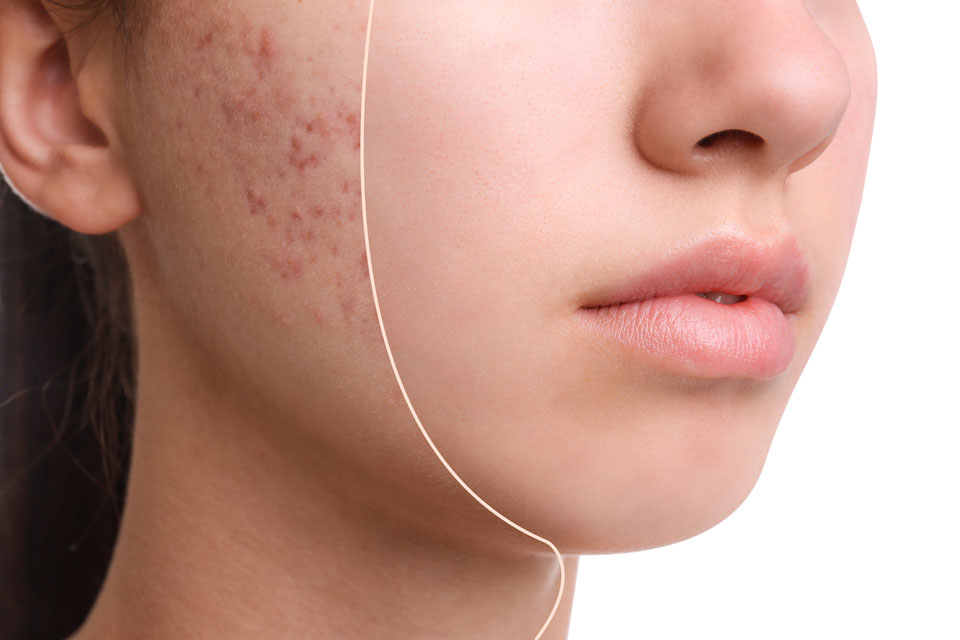Acne

All acne related therapies aim at a clean and smooth skin, without discolouration and scars; the look and feel of healthy and beautiful skin.
We start with the statement above because an infected skin or a skin with discolouration and scars does not constitute a good basis for any medical aesthetic / antiaging treatment. The result of such an approach for the patient, can only be an expensive and psychologically burdensome process compared to a timely diagnosis and therapy.
At our practice, we treat all stages of acne, and our experience ensures a safe and effective treatment plan for the clean and healthy skin you desire.
However, what makes us excel is our focus on sustaining the results achieved, following European guidelines upon the completion of the treatment plan.
Drug prescriptions to treat acne are now customised to each patient’s case but if the patient does not like taking drugs or if a drug prescription therapy is viewed too long, the non -invasive photodynamic treatment is an effective alternative.
A photodynamic treatment (PDT) makes use of a photosensitizer substance and light (red or blue light) in a process that activates the light absorbing properties of the skin cells resulting in antimicrobial and anti-inflammatory reactions that help with the reduction and the destruction of P.acnes.
The known, common acne (acne vulgaris) is a condition that affects the hair follicles and the oil glands. It appears mainly during puberty but can also affect people in their 40s (although at a much lower frequency) and the symptoms range from whiteheads and blackheads to papules and pustules, found usually on the face, chest, shoulders and upper back, areas rich in oil glands.
We treat mild acne symptoms with topical medication, dermatology-grade facials and chemical peelings using mainly salicylic acid, retinoids and glycolic acid, substances that only a dermatologist is licensed to use because of the specialised knowledge needed regarding their safe application.
In case of moderate or pustular acne, moderately severe or nodulocystic acne, oral acne medications are prescribed.
Finally, in cases of severe nodulocystic acne or in cases of referred unsuccessful cases, a different oral medication plan is prescribed alongside the close monitoring of the case and its progress.
Many patients ask us about the role of diet due to the many articles that exist regarding the effect of certain foods on acne symptoms. Apart from the high consumption of dairy products and high glycaemic foods, existing research has not produced any evidence for other groups. However, what is equally known is the fact that the Mediterranean diet has multiple positive effects on our health due to its balanced nature, and that in cases of acne therapies that include retinoids, fatty foods should not be included at all for they impact the effectiveness and the timely completion of the therapy, risking side-effects too.
We would like to end this section by encouraging all readers to take care of their Health through a balanced diet, and in case they have children or/and teenagers to teach them the importance of loving oneself.
Beauty should not be achieved through therapies only but by combining a healthy diet with the right care routines on a daily basis.
